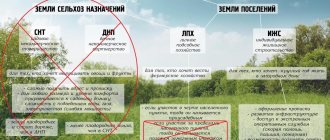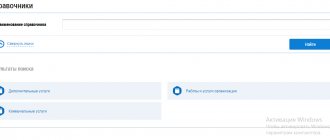Today we invite the reader to talk about a phenomenon that is widespread in Russia and is called personal subsidiary farming. What will we talk about? What exactly does this concept mean? In this case, are we talking about a farm (peasant) enterprise, implying relatively large-scale land ownership with a corresponding turnover, or is it just a modest backyard garden capable of feeding only its own owner and his household? Let's figure it out.
If you have a vegetable garden or a small plot of land next to your house where you grow a few vegetables and keep a few livestock, you may not be planning to expand your farm. But if there is a surplus of grown and produced goods that you cannot consume yourself, you plan to sell them. Will such revenue be classified as income received from business activities? What do the laws say about this?
Federal Law on personal subsidiary plots
Such activities are regulated by law. Namely - 112 Federal Law of the Russian Federation entitled “On personal subsidiary farming”, issued in 2003 (July 7). The first paragraph of article number 2 of this normative act provides a definition of the concept of personal subsidiary plot. Private subsidiary farming is a form of activity related to the production and processing of agricultural products. Moreover, this activity is considered non-entrepreneurial.
A private household plot (personal subsidiary plot) is conducted by a citizen alone or with the involvement of family members in order to satisfy their own personal needs on a plot of land acquired or provided specifically for this purpose.
The agricultural products that are grown and processed, in this case, belong to the property of the leading private household plot of the citizen, and the process of its sale is not a business activity. Private household plots should not be registered separately. The right to engage in such activities (production and processing of agricultural products with their subsequent sale) arises immediately after registration of ownership or lease of the specified land plot. According to the aforementioned Federal Law No. 112, a citizen running a private household plot is a commodity producer in the field of agriculture (similar to a farmer or agricultural enterprise).
Rules for keeping cattle (cattle) in 2021
A citizen who decides to take care of cows must comply with the following rules for keeping livestock:
- It is imperative to create conditions for keeping animals: build an appropriate room where it should be heated in winter. It is also necessary to provide electricity to the barn;
- animals should have free access to water; they must have it constantly;
- the owner of a private household plot is obliged to comply with veterinary, sanitary, hygienic standards, and general principles of humane treatment of animals;
- Manure contamination of the surrounding area should not be allowed. The barn must be cleaned and new straw laid;
- animals must undergo routine vaccinations against parasitic and infectious diseases;
- Animals must be slaughtered in special slaughterhouses. It is prohibited to carry it out in places not intended for slaughter;
- the owner must organize the grazing of cows. In winter, he must ensure that the cows are kept in stalls;
- to feed cattle you need to use special feed, hay, straw, silage, compound feed, milk (for calves);
- water for drinking cattle must be clean and potable;
- Cows should graze on pastures, which should be located at a distance of no more than 2.5 km from a watering hole (river, stream, canal, etc.).
How many cows can be kept on a private farm according to the law in 2021?
The law does not establish a standard or maximum number of cattle that can be kept and used in private household plots.
On what land plots is it possible to organize private household plots?
There are only two categories of these. The first of them is land plots for personal farming within the boundaries of the settlement, that is, household plots. The second is land plots outside the settlement (field). Agricultural products are produced on private plots, and residential buildings, buildings and structures for domestic, industrial, etc. purposes are also erected. A land plot with field status can only be used for agricultural production without the right to construct any buildings on it.
Loan for opening an individual farm
You can take out a loan for the development of a personal subsidiary plot in several banks in the country, such as Rosselkhozbank, Sberbank, Chuvakcrediprom, AK Bars Bank and others. Rosselkhozbank offers a loan for the development of private household plots with the following conditions:
- interest rate from 13 to 15.5% depending on the term of covering loan obligations,
- amount 1-1.5 million rubles,
- age requirements: from 23 to 65 years,
- Russian citizenship,
- work experience in rural areas of at least 1 year, this also applies to dating entries in the household ledger,
- documents related to the conduct of this type of labor activity: invoices, invoices, receipts, acts of acceptance of the transfer of machinery, equipment, etc., information about state property registration
- personal data of the borrower.
You can also get a similar loan from Sberbank:
- interest rate 17%,
- amount from 15 to 300 thousand rubles for a period of up to two years and from 15 to 700 thousand rubles. for a period of up to 5 years,
- age requirements: from 21 to 70 years,
- Russian citizenship,
- work experience in rural areas of at least 1 year, this also applies to dating entries in the household ledger,
- documents related to the conduct of this type of labor activity: invoices, invoices, receipts, acts of acceptance of the transfer of machinery, equipment, etc., information about state property registration
- personal data of the borrower.
Read also: How much is advanced age?
It is also possible to get a loan for the construction of communications under the programs: “Gardener”, “Reliable Partner”. Subsidizing covers the following areas of the agricultural process:
- organization of access roads, laying communication lines, water and energy supplies,
- assistance in the marketing and processing of grown products by providing free places for trading at markets, fairs, etc.,
- providing support in the purchase of breeding stock, insemination of broodstock,
- annual free veterinary care,
- purchase of fuels and lubricants and spare parts for the normal functioning of production.
To take part in such a program, you need to prepare a set of documents : an application, an evidence base for the costs of agricultural work, originals and copies of loan agreements for private household plots, a register of livestock and acts of slaughter, etc.
IMPORTANT! The amount of subsidies directly depends on the region and its financial capabilities.
Are there restrictions on the size of a plot for private household plots?
The maximum size of such a plot, when it is provided to a citizen as property from municipal or state lands, is regulated by legal regulations of the local administration. The maximum total area of all land plots that every citizen has the right to simultaneously own or otherwise have is established in accordance with the law of a constituent entity of the Russian Federation.
If the total area has exceeded the maximum permissible size, then within one year from the date the right to the “extra” land plot arises, this territory must be alienated by the citizen. Another option is to register the specified person as an individual entrepreneur within the same period or carry out state registration of a farm (peasant) enterprise.
Advantages and disadvantages
If you are in doubt whether or not to register private household plots, read the pros and cons.
pros
The advantages of running an individual farm are as follows:
- ✔ this form of agricultural production can be created on the basis of an existing plot of land owned or leased without the status of an entrepreneur
- ✔ no need to register as a “business”
- ✔ you can start breeding livestock and fruit crops immediately after fixing the rights of ownership or use of the land
- ✔ no taxes
- ✔ is not registered with the tax authorities, therefore there is no need to prepare numerous reports
- ✔ provision of benefits
- ✔ exemption from personal income tax
- ✔ reduced transport tax rate
- ✔ payment of contributions to the country’s Pension Fund is made with the personal consent of the organizer of the private household plot
- ✔ inspections by sanitary and veterinary services are not provided
Minuses
The disadvantages of this form of management include:
- ✘ state limitation on the number of land areas for private household plots,
- ✘ no state support in the form of preferential subsidies,
- ✘ some types of activities are prohibited,
- ✘ a certificate of conformity is not issued for the received products.
Accounting for private household plots
All private household plots are recorded by the administrations of settlements and urban districts in their household books. These books are maintained according to the information provided on a voluntary basis by the leading citizen of the private household plot:
- Who runs it - full name, date of birth of the citizen to whom the plot was provided or who acquired it for the purpose of running private household plots.
- Data (full name, date of birth) of those who, together with him, participate in the management of private household plots (residents or simply family members).
- Area of land occupied by private household plots. On what lands are crops and crops planted, on what lands are there berry or fruit plantings?
- Number of livestock, farm animals, birds and bees.
- What property is available to private household plots? We are talking about equipment, agricultural machinery, vehicles that, by right of personal ownership or otherwise, belong to the leading citizen of the private household plot.
Changing the purpose of land
In practice, changing the status of a land plot occurs by changing the type of permitted use within the same category. In some cases, to change the purpose of land, it is enough to write an application. In other cases, a long procedure follows, the result of which is consent or refusal.
This is especially important when purchasing land. Some citizens, tempted by the relatively low price, buy a plot of land in order to build a house. Usually the purchase is preceded by the realtor’s assurances that it is very easy to transfer the plot from one category to another. Most often we are talking about the transfer of agricultural land to urban land. This can be done if the site is adjacent to the city limits.
What taxes does the leading LPK have to pay?
Article number 217 of the Tax Code states that the taxpayer’s income, which is received from the sale of livestock and poultry raised in private household plots located on the territory of the Russian Federation (in live form, in the form of their products or slaughter - in raw and processed form), in addition - products plant and livestock farming, beekeeping and floriculture (also in natural or processed form) are not subject to personal income tax. Running private household plots is a form (as already mentioned) of non-entrepreneurial activity. That is, citizens who organize such an economy will not have to pay:
— VAT (payers are individual entrepreneurs and organizations);
— income tax;
— as well as property tax (this does not apply to real estate, equipment and vehicles).
In addition, he is not “threatened” with deductions from the salaries of employees, who are most often family members.
What will owners of private household plots have to pay? They must pay land tax. Agricultural machinery and real estate are also taxed.
Advantages and disadvantages regarding private plots and private housing construction
Each category of land has its own positive and negative sides.
| Category | Advantages | Flaws |
| individual housing construction |
|
|
| Private household plots |
|
|
Let's talk about selling private subsidiary farm products
Before you start selling products grown in your own private plot, you should obtain a certificate from the local administration (from the head of the rural settlement) stating that the products grown and sold by you were produced exactly there - in your private plot. This guarantees you tax exemption.
For example, you are taking your own vehicle to sell several slaughtered sheep or chickens to the city market. When stopped by a traffic police officer, questions may arise: where are you going and where is so much meat coming from? By presenting the specified certificate (that is, confirming that products grown in private household plots are being transported), you will get rid of unnecessary misunderstandings.
Another situation is that you plan to deliver this meat, for example, to a sausage shop. In this case, a trade and procurement act will be drawn up indicating your passport details and Taxpayer Identification Number (don’t forget to stock up on copies of these documents to provide the product to the buyer). The above-mentioned certificate of sale of products grown in your private household plot is a mandatory appendix to the trade and procurement act.
Getting permission
A building permit is not required when registering the right to a house, but it is still better to obtain one. The Town Planning Code of the Russian Federation (Parts 1 and 2 of Article 51) still provides for the need to build only with a construction permit, and the Code of Administrative Offenses (Part 1 of Article 9.5) establishes liability for the construction of a capital construction project without permission.
A violator, an individual, is subject to a fine of 2 to 5 thousand rubles, and such a fine can be imposed repeatedly throughout the entire construction period.
To obtain a construction permit, an application for a permit and three documents accompanying it are submitted to the local administration:
- title document for land;
- urban planning plan of the site, it must first be obtained from the same administration by writing an application for issuance, the administration collects documents for registration independently, the urban planning plan is issued free of charge within thirty days from the date of submission of the application;
- a planning organization diagram, which is prepared by the developer to the best of his ability - usually the proposed development scheme is drawn with a pen on a copy of the cadastral plan.
If these three documents are available, a building permit is issued no later than 10 days after submitting the application.
About possible misunderstandings
The law determines that the buyer does not have the right to withhold personal income tax from you and does not have to submit a corresponding certificate for you to the tax office. But sometimes, due to poor knowledge of legal subtleties, the person purchasing the product may still file information against you with the tax authorities about the income received.
In this case, at the beginning of the next calendar year you will receive a notification about the income received based on the results of the past year and unpaid tax. Then you will have to pay a visit to the tax office and give oral or written explanations about the nature of the transaction. In this case, no declarations are required and the tax itself, as already mentioned, does not have to be paid.
What else should the owner of private household plot know?
If you sell the products you have grown on the market, the use of cash register equipment is not required - only an organization or individual entrepreneur, which you are not currently a member of, must have it.
Hence the conclusion - if the entire set of land plots in your ownership or lease does not exceed the size established according to the law of the subject of the Russian Federation, then this form of self-employment - in the form of organizing private household plots - can become the best option, since one of its undoubted advantages is the absence of registration and taxation .
At the same time, state bodies and local administrations are prohibited from interfering in the activities of the leading private household plot of the citizen, except in cases provided for by law. It is their authority to monitor the compliance of such citizens with legal norms.
Construction and registration of houses on private plots
Construction projects can be erected on private plots. To do this, you need permission, which can be obtained from local authorities. There will be a refusal only if your plot is intended for agricultural cultivation (field) or it is located outside a populated area.
In order to obtain permission, it is enough to provide the administration with a package of documents. After construction, the building must be put into operation and registered. You will not have problems with this if the plans and technical rules were not violated during the construction of the building.
After this manipulation, the private house becomes residential. You can register there. To do this, you need to submit a request to government agencies in the manner prescribed by the Housing Code of the Russian Federation.
Does the state support owners of private household plots?
According to Article 7 of the same law 112 Federal Law, support measures for citizens employed in private household plots are determined by local government bodies. Along with this legislation of the Russian Federation, the following areas of state support for such citizens are provided:
- In the form of the formation of the necessary service infrastructure (access roads, energy and water supply, communications, etc.), assistance in the organization of consumer agricultural cooperatives of trading (marketing), processing, servicing and other nature.
- In the form of stimulating the development of a network of private household plots by creating conditions of a social, organizational, legal and environmental nature. In particular, owners of private household plots, as well as organizations serving them (for example, agricultural cooperatives), are provided with financial, logistical and technical resources, as well as technologies and necessary scientific and technical developments, on a repayable basis.
- In the form of implementing the necessary measures leading to improving the quality of rural breeding animals, organizing their artificial insemination.
- Also - an annual free veterinary examination of livestock with the organization of veterinary services and the fight against infectious diseases among animals.
How to apply
A document confirming the ownership of a land plot is necessary for the owner when selling it or exchanging it for an apartment. To obtain and register a plot of land as a personal subsidiary plot, you must proceed as follows:
- To make an informed choice, study information regarding private household plots:
- Laws, regulations (state and regional) regulating the relationship between authorities and the land owner.
- Criteria for choosing a land plot.
- Economic aspects of running a personal household (taxation, types of subsidies, etc.).
- Get advice from a competent specialist at your local administration about:
- Possible area of land plot.
- Her location.
- Availability of utility networks.
- Support program from the local government.
- Procedure, deadlines for registration, etc.
- Complete an application and submit it to the local government administration. In addition to personal data, it is necessary to indicate:
- Reason for purchase.
- Method of obtaining an allotment (ownership or lease). The right to privatize the allocated land plot will occur after 3 years of lease.
- Desired land area.
- Provide an extract from the household ledger. It is issued by the local government body to the owner or his representative using copies of the power of attorney and the proxy’s passport.
- It is necessary to obtain a passport (scheme) of the allocated land plot from a special design organization.
- The technical passport of the plot with the necessary package of documents is submitted to the local administration for approval of the boundaries of the land plot. The head of the municipality, by his resolution, must secure the right to transfer property to the applicant.
- The collected package of necessary documents is transferred to the cadastral chamber to assign the corresponding number to the land plot and draw up a plan.
- The documents issued by the cadastral chamber are submitted to the local government body for final confirmation of land ownership.
- After making sure that the documents confirming ownership have a note that the land was purchased for private household plots, it is necessary to register it with the regional registration chamber.
What else influences the development of LPH?
The legislation of the Russian Federation provides for the extension to private household plots of those state support measures that are provided at the expense of the federal budget to agricultural producers. Subjects of the Russian Federation are adopting programs for the socio-economic development of not only rural settlements, but also private household plots. Within the limits of their own powers, they determine in what form, size and order support will be provided for private household plots on their own territory together with the agricultural cooperatives and other organizations that serve them.
The right to enter into legal relations of compulsory pension insurance for leading private household plots is granted to citizens on a voluntary basis.
When does private household farming stop? This occurs in the event of termination of rights to the land plot where it is carried out.
FAQ – answers to frequently asked questions
The topic raises many questions among ordinary people, so more than one discussion has been created on the forums.
Let's resolve the most controversial issues.
Question 1. Is it possible to register for private household plots?
If a house is built according to the law on the territory within a populated area and private farming is carried out on a personal plot of land, you have every right to register in the built house, put into operation in accordance with the Housing Code of the Russian Federation.
To do this, the owner of a residential building needs to visit the passport office and write an application to register the place of residence.
If initially the farm was carried out on a field intended for agricultural crops, then construction here is prohibited by law and there is no opportunity to register.
Question 2. How to register a house under the dacha amnesty for private household plots?
Until March 2021, the process was greatly simplified. Now all simplifications have been cancelled, except that there is no need to put the house into operation by a local administration commission.
Now to register a house under the dacha amnesty you need:
- Urban development plan of the land plot (provided free of charge).
- For some regions of the Russian Federation, additional topographic survey of the plot is required.
- Scheme of planning organization of a land plot.
- Technical plan of a residential building.
It is not necessary to have a house plan. The legislation states that it is enough to submit a declaration written by a cadastral engineer when developing a technical plan.
Question 3. Is it possible to register a leased land plot for private plots as ownership?
In the case when the rented plot was used, including for the construction of a house, and the residential building was registered as the property, the owner is entitled to a preferential purchase of the land.
How to become the sole owner of a plot and living space - action plan:
- Receive a cadastral passport for the house. An obligatory step is calling the commission to the site.
- Register the house in the name of the owner.
- Write an application to the administration about the desire to buy the land under the building, which is owned. In this case, bidding is not held, since the owner of the private plot has a priority right of redemption.
- Sign the purchase and sale agreement.
- Pay the cost of the land. The price depends on the population in the city/village/town.
- Submit documents to Rosreestr for registration of the right to individually dispose of land.
For the described procedure, you will need the following documents: a lease agreement, a resolution of the local administration on the provision of a plot of land for lease for private household plots, cadastral passports for the land and the constructed object, an extract for the house from the Unified State Register of Real Estate.
For more information about building a house on a private plot, watch the video:
What should be remembered by those wishing to organize private household plots?
As already stated, the law does not allow construction on agricultural land. That is, if you are planning to build a residential building or other structures, your private household plot must be within the boundaries of the settlement. It should be taken into account that rent per hectare of land within its borders costs an order of magnitude more than outside the settlement.
In the case of obtaining the status of a farmer (that is, the formation of a farm), a citizen is obliged to register as an entrepreneur with all the ensuing difficulties and consequences - maintaining a balance sheet, reporting, which greatly complicates the procedure for managing a plot of land and will scare many away from this activity.
Another option for those wishing to build on private household plot land is to seek transfer of the field plot to the category of settlement land. It must be remembered that land used for purposes other than its intended purpose may be legally seized.
What is individual housing construction?
The individual housing construction category stands for individual housing construction and is responsible for itself. These lands are intended for the construction of a residential building and other necessary buildings. The only limitation is the parameters of the house itself:
- the building should be no more than three floors high from the ground;
- used for single family residence;
- location on the site using the necessary setbacks from other objects;
- During construction, urban planning standards must be applied that limit the area of the building.
It is prohibited to locate commercial objects within the allotment with the type of individual housing construction.
More about individual housing construction










